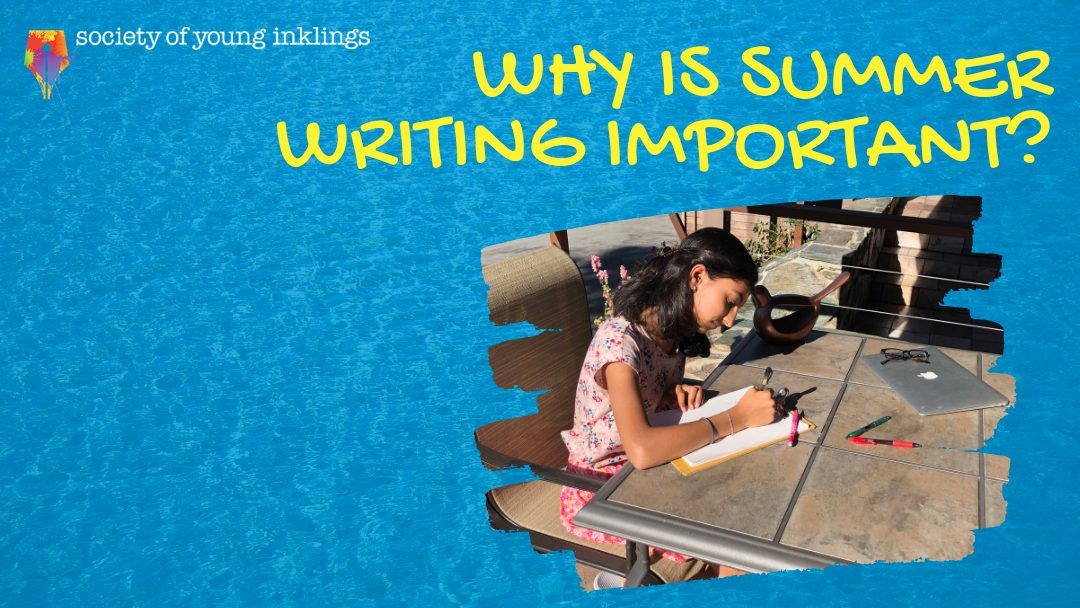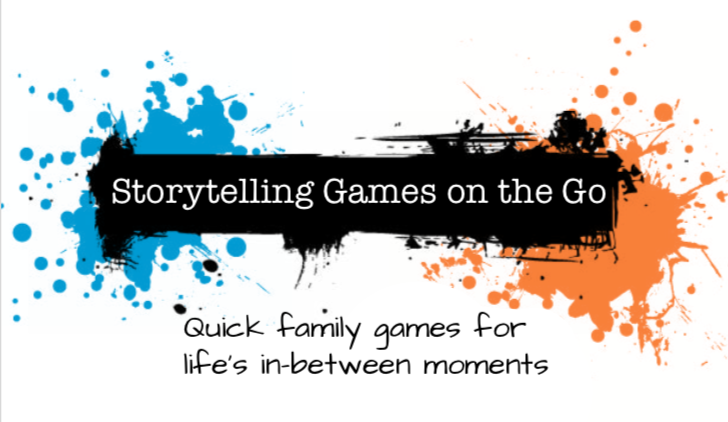Why is Summer Writing Important?
Just like summer reading, summer writing is a valuable gift you can give your child in the months when they are away from school.
From an academic point of view, writing over the summer prevents summer “slide,” where youth lose some of what they learned over the school year.
Beyond those basics, writing over the summer provides emotional and creative benefits that are often less available during the school year.
Summer writing helps youth take ownership of their writing, strengthen their emotional connection with family and friends, and explore their creative potential. How can you, as a parent, help your child access these powerful results?
Ownership
No matter how committed a teacher is to developing students’ intrinsic motivation, assigned writing feels different than a project we choose ourselves. When kids tell me they don’t like writing, I ask a few questions. Most times, we discover that what they don’t like is writing on command. They don’t like writing about topics that don’t matter to them. And they especially don’t like being told they didn’t write their piece “right.”
Summer is an excellent time for youth to reset their relationship with writing. Without the pressure of assigned topics, deadlines, and grades, they can remember the truth about writing. In fact, left to our own devices, we watch stories, play games based on stories, and tell stories naturally every day. Stories entertain us and help us feel understood. A young person’s identity shifts when they stop focusing on what’s difficult about writing, and have that important aha! moment: Wait, I love stories! Now, they think of themselves as writers. They take ownership of their writing. With this changed mindset, even difficult writing tasks become more manageable.
Of course, forcing your child to write over the summer won’t yield this result. So, if they aren’t writing on their own, how might you help them take ownership of their writing? My suggestion is to plan a short, fun writing activity. You’ll know the best way to pull this off with your child, whether it’s to create a spontaneous storytelling opportunity, to plan an outdoor adventure that includes writing, or even to throw a lively writing party using our Inklings Story Sprint program.
Even one or two fun experiences will provide evidence that not all writing is torturous. This evidence will go a long way as your child heads back to school. You’ll have opportunities to remind them, “Yes, I know figuring out how to put that thesis into words is difficult. But remember that exciting and clear scene you wrote about Lily waking up and realizing she had magical powers? I know you can do this.” In the best cases, playful writing experiences can spark general excitement, and launch your child into a writing project of their own.
The principle of “show, don’t tell” goes a long way in helping your child take ownership of their writing. Consider what kind of writing project makes sense for you this summer. What about picking up a fun journal and doing some reflective writing? Might you enjoy playing around with poetry? Or, you could even try your hand at writing a picture book. If you experiment with writing yourself and discover authentic joy in the process, you’ll blaze the trail for your child to follow.
Emotional Connection
We’ve all asked a family member about their day only to have them shrug and say, “It was fine.” We weren’t asking for a status report. Instead, we wanted a story. If they had opened up and shared a moment from their day, we could have made an emotional connection with them. We could have seen the day through their eyes. Hearing their story, we would have felt what today was like for them, in its ups or downs, or both.
Even though the ability to tell stories is nearly as natural as breathing or eating, sometimes our skills get rusty. Tuning up three simple skills makes a huge difference.
First, we need the ability to choose. Sharing a laundry list of things done in a day is never as meaningful as telling a story. Like all skills, the ability to identify a moment that will make a great story takes some practice. By making storytelling about your days into a family habit, everyone in the family will strengthen your decision-making skills.
Second, we need to pinpoint the beginning, middle, and end. Rambling, unfocused stories aren’t as satisfying to tell. After we’re done sharing, we often don’t feel any more seen or heard. Rather, we feel confused. Why did we tell that story anyway? Sometimes, listeners can help us build this skill by reflecting back to us what they heard. For instance, “So, you stood there on the diving board, terrified, but then you dared to do it, and everyone cheered? Wow, that must have felt amazing!”
Third, we need to risk sharing our feelings. Stories connect us heart to heart when we share how a moment made us feel. In the example above, the listener could ask a few questions to clarify how the dive felt, helping the storyteller feel the emotion again. By helping the teller put the feeling into words, both the listener and teller feel more connected to the emotion, and to one another.
If you decide to play around with family storytelling, remember that everyone’s stories matter. No matter whether a person is listening or telling, they’re building their storytelling muscles. Also, keep in mind that writing is 80% thinking, and only about 20% mechanics. Learning to tell stories out loud is a solid way for your child to build overall writing skills.
Creative Potential
When we’re focused on the bare minimum, we miss out on much of what an activity can offer. Kids who’ve decided they hate writing don’t have a sense of curiosity or enthusiasm around writing.
Alternately, writing can become a world of possibility, an opportunity to follow a “what if ….?” question, or to see what you can create—be it a movie, a graphic novel, or a poem inside a pinwheel.
As you explore opportunities for writing and storytelling this summer, notice where your child’s passion shows up. Then, help them lean into that exploration. We have a number of resources at Society of Young Inklings to support youth as they continue writing, including the opportunity to meet with a mentor to plan or check in about a project. Even a few meetings over the summer can give your child unique perspective and momentum. Learn more about Young Inklings custom mentorships here.
What’s the first step?
Storytelling doesn’t have to be another boulder on your summer to-do list. All you need are a few moments here and there––on a hike, to and from STEAM camp, or while you’re sitting in the airport waiting to board a plane. You can get started with a quick game from our cheat sheet: Storytelling Games on the Go. Enter your email below to grab your copy and happy storytelling!



